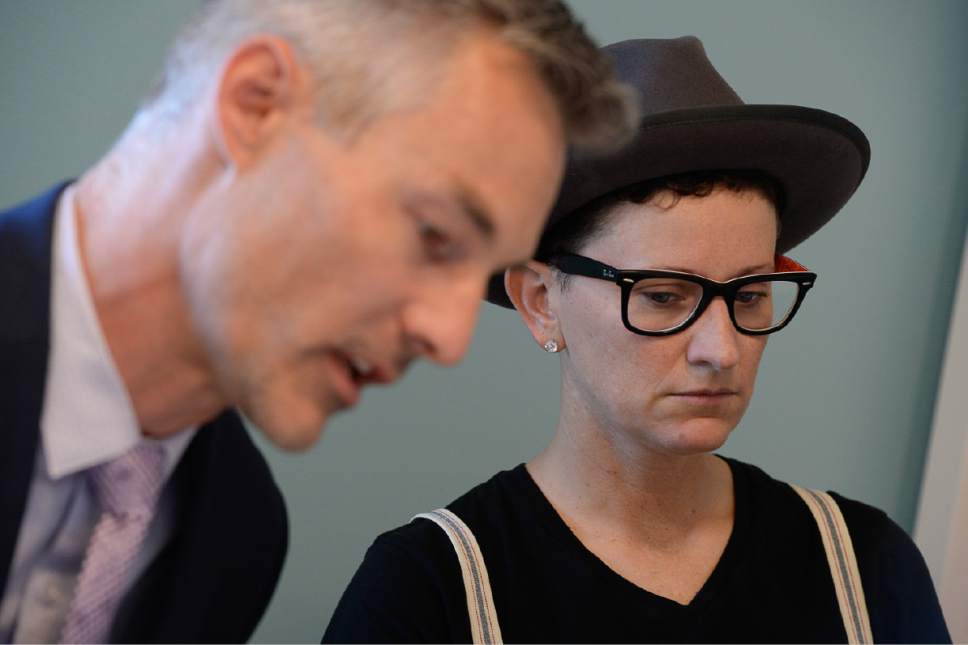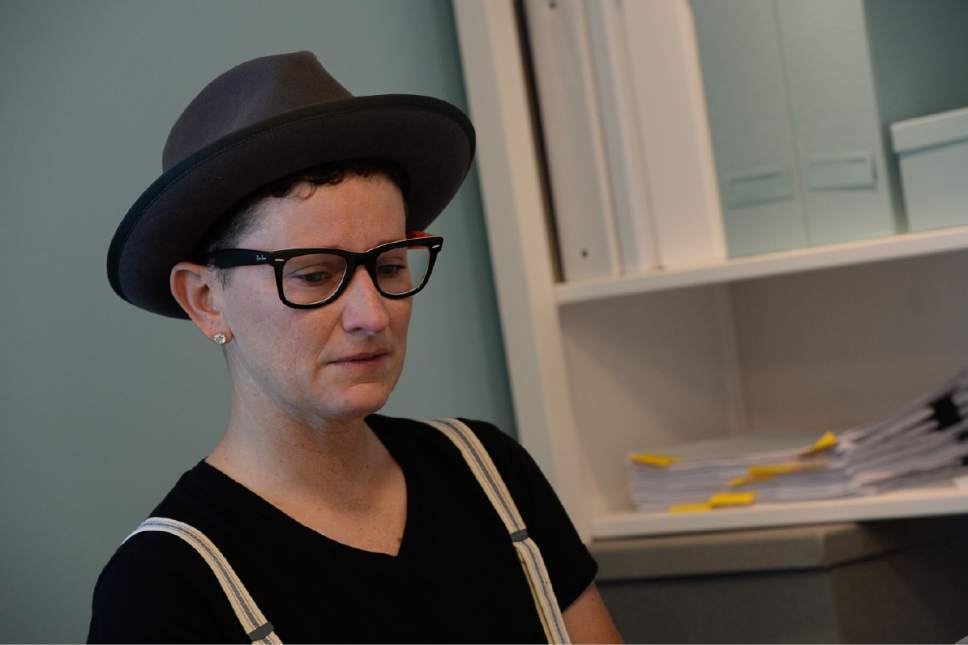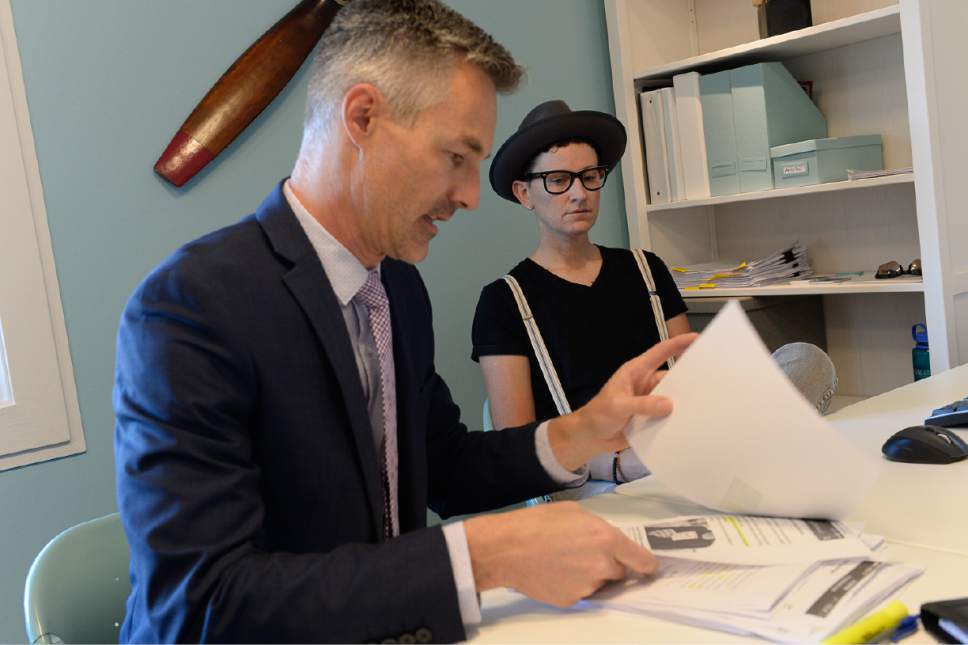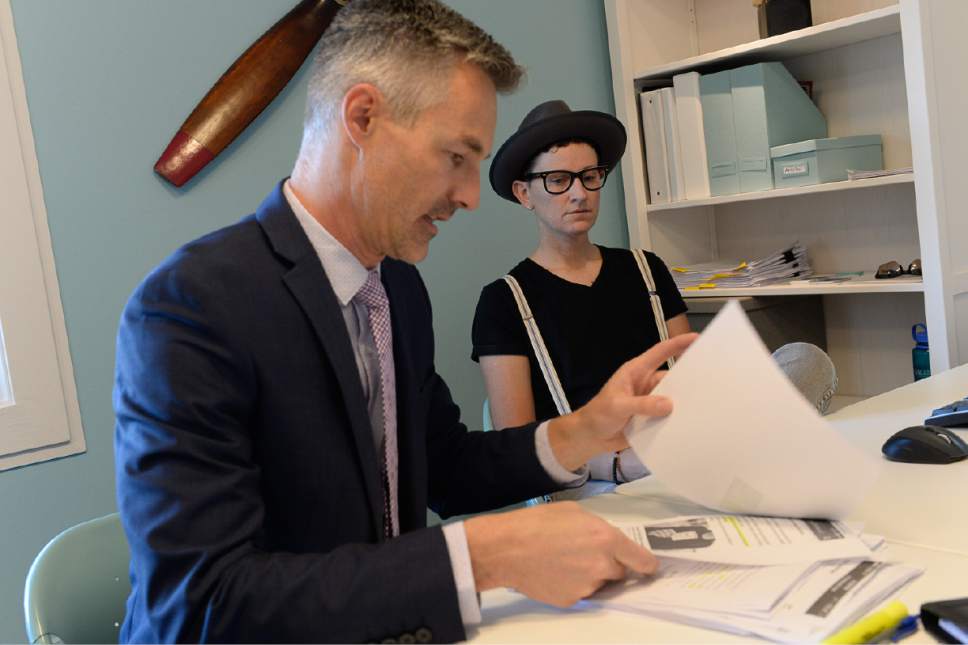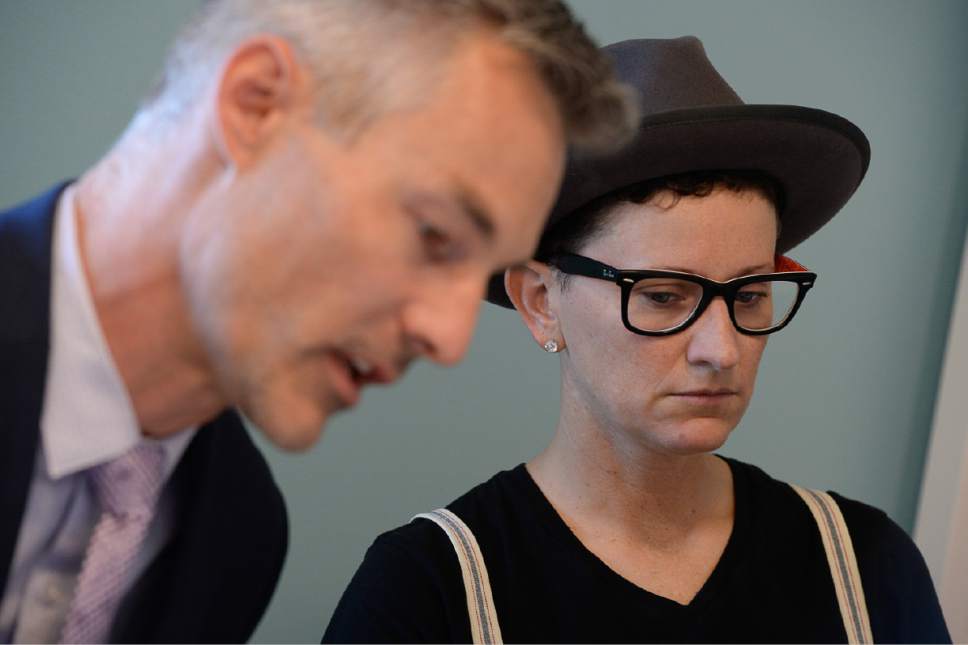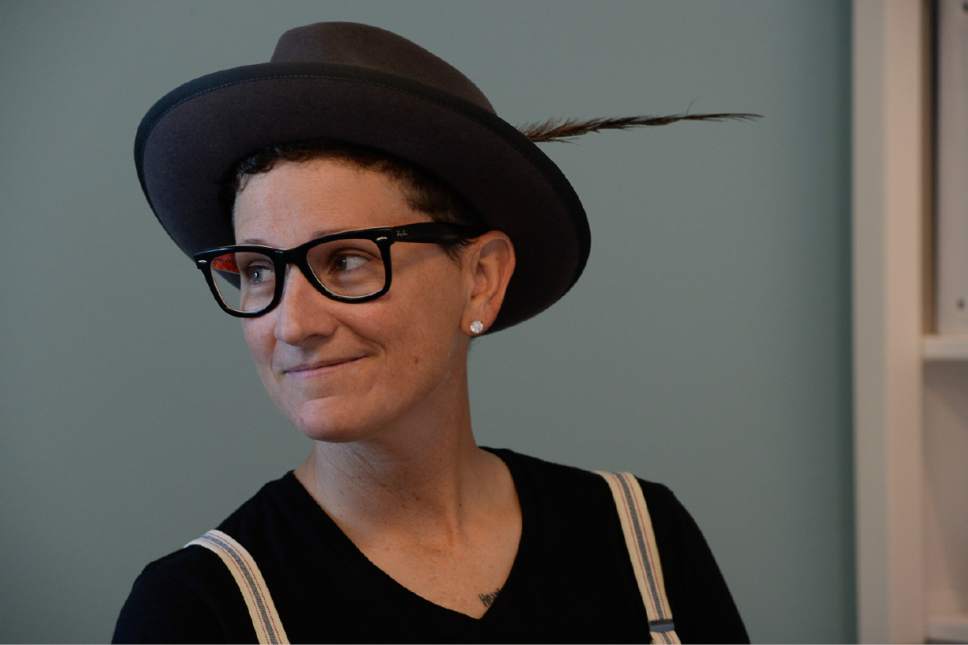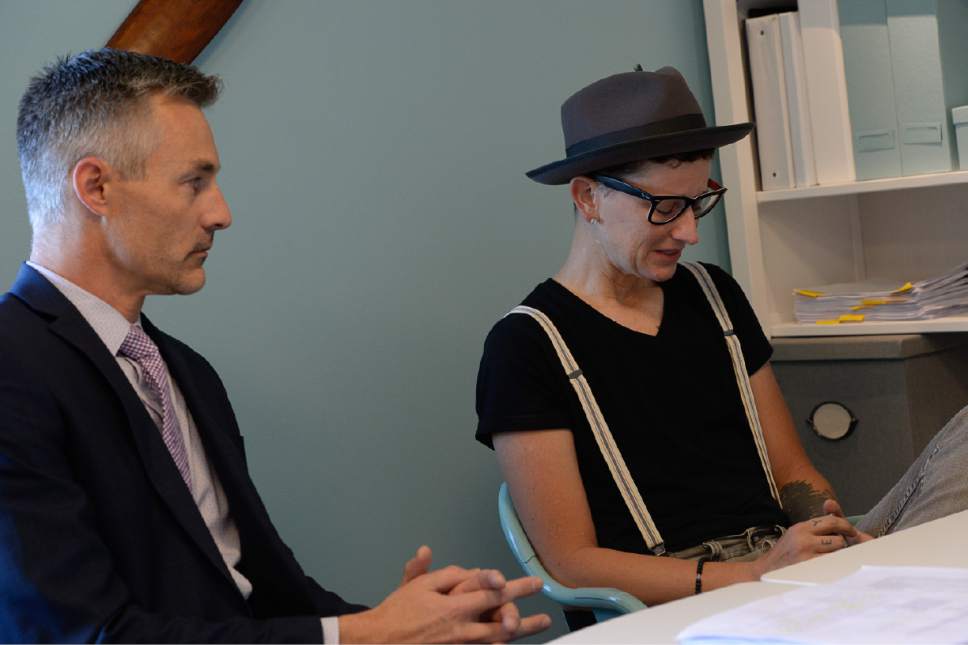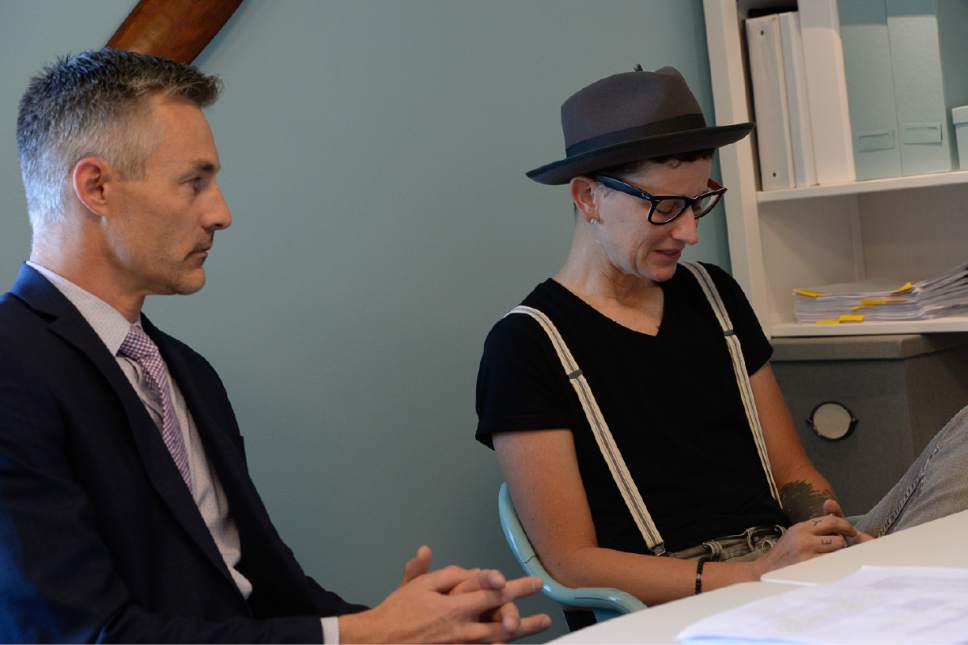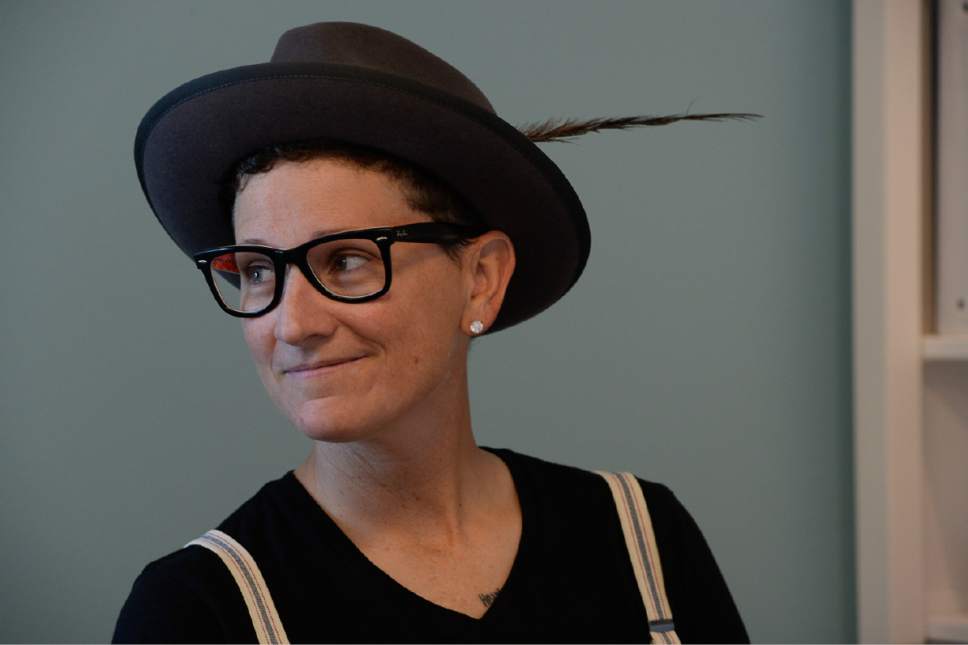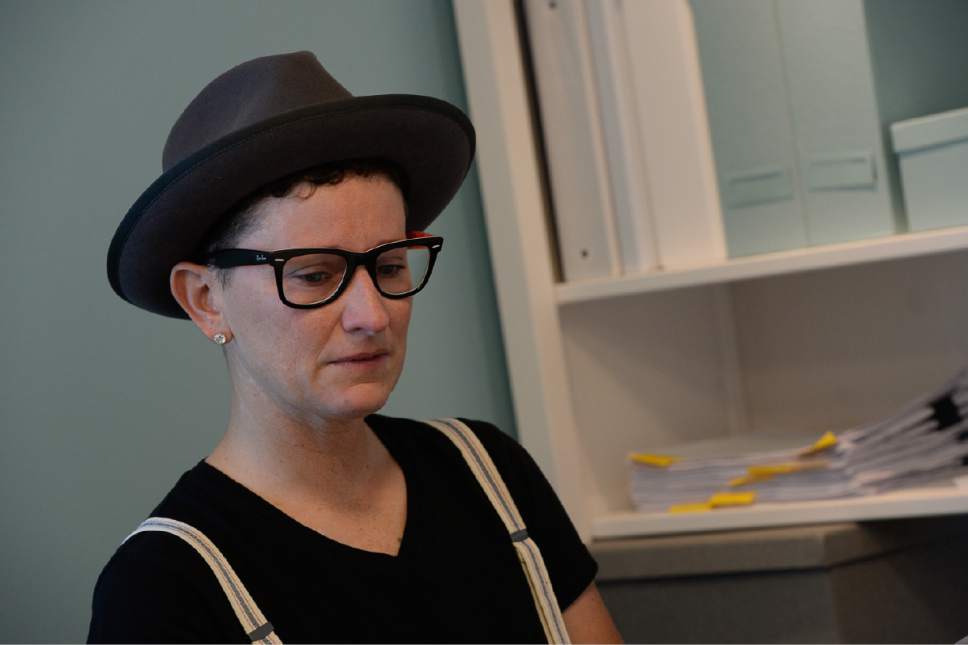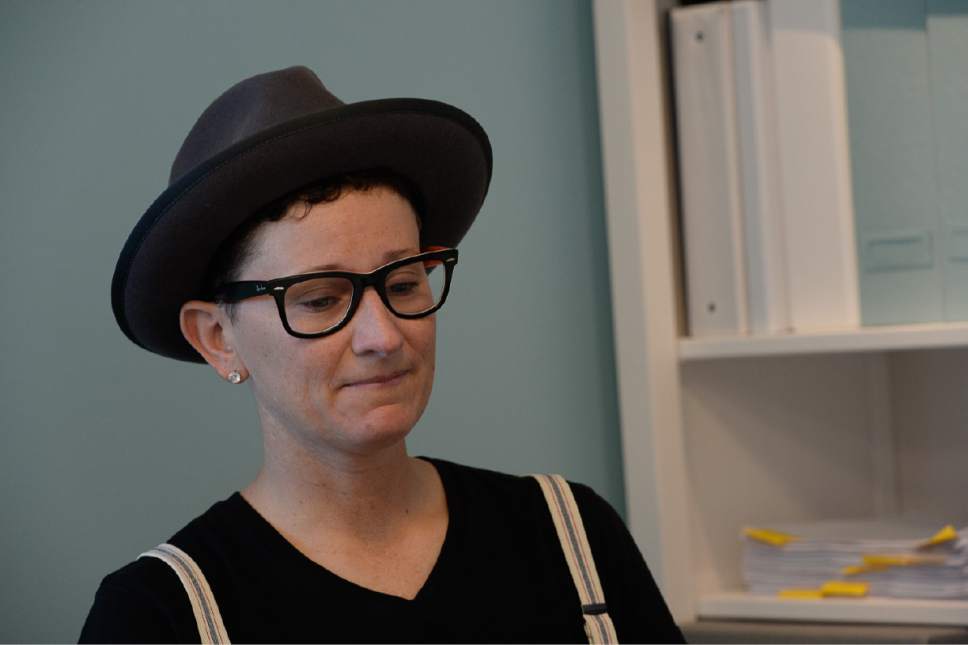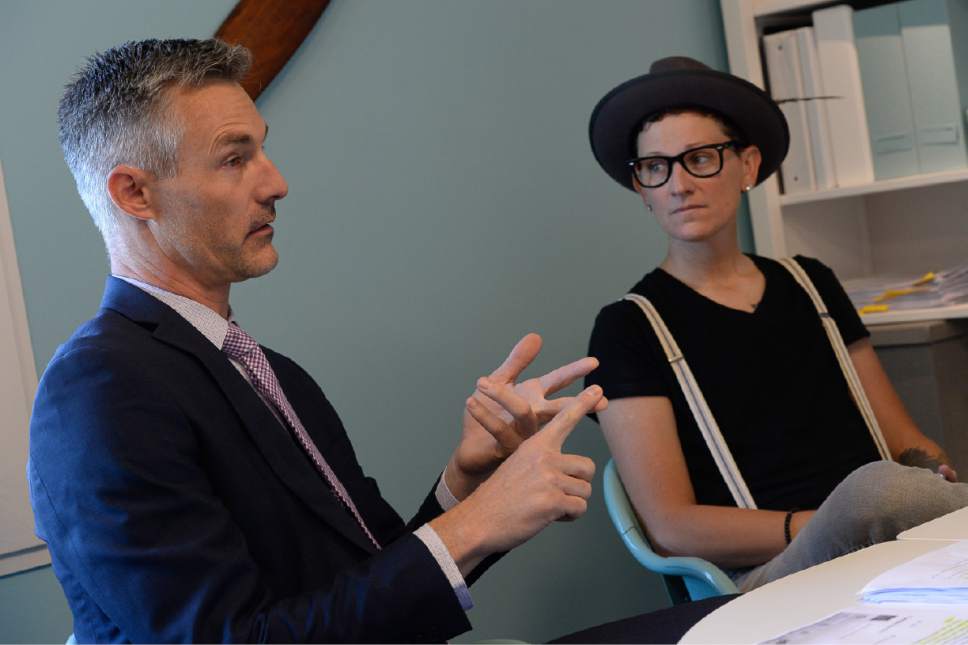This is an archived article that was published on sltrib.com in 2017, and information in the article may be outdated. It is provided only for personal research purposes and may not be reprinted.
A Utah doctor known for her dedication to providing medical care to transgender people has been sued for malpractice after allegedly removing both of a trans patient's ovaries during surgery when she only had consent to take one.
As a result, Dr. Rixt Luikenaar "breached her duty of care" to patient Lesley Ann Shaw in March 2015, according to the lawsuit filed July 21 in 3rd District Court.
Shaw, 37, was suffering from menstruation problems, including painful periods that lasted several weeks.
Luikenaar's surgical plan was to include a hysterectomy, the removal of both fallopian tubes and the excision of one ovary, court papers say. Shaw wanted the second ovary retained so natural hormones would still be produced and so Shaw might have a biological child one day.
"I absolutely thought we were all on the same page," Shaw said in an interview. "I said to [Luikenaar], 'I'm only at peace having this surgery as long as one ovary is retained.' "
Luikenaar's response: "We'll leave the pretty one," court papers say.
Instead, Shaw awoke after surgery to learn Luikenaar had removed both, the lawsuit states.
Derek Williams, Luikenaar's attorney, would not comment on the specific allegations in Shaw's lawsuit, but he said his client is a "well-qualified OB/GYN" who has devoted much of her practice to assisting transgender individuals through their transitions.
"Dr. Luikenaar's commitment to these groups will not change because of this case," Williams said. "Her expertise in this field of medicine is highly regarded and sought after, and that respect and trust is the result of years of very good medical care and advocacy for her patients."
An obstetrician and gynecologist for nearly 20 years, the Netherlands-born Luikenaar began working with transgender patients in 2010, her curriculum vitae says. In 2014, she founded the Rebirth OB-GYN clinic in 2014 and has treated more than 2,500 trans and gender nonconforming patients since, Williams said. Each month, about 50 new patients come to her for care.
Williams also said Luikenaar has been recognized for her work by many groups, including the Transgender Education Advocates' 2014 Advocate of the Year award and a 2016 Equality Utah Allies Award.
"This is a real affirmation of what we are doing for our transgender, LGBTQIA and gender nonconforming community," Luikenaar said in a video of an Equality Utah awards ceremony in 2016. "There is a great need in our city for better access to affordable and respectful care for our transgender and gender nonconforming patients."
Shaw was born female and no longer identifies as a woman, but as a "transgender, nonbinary or agender individual." Shaw came out as trans in 2013 and prefers to use the pronouns "they" or "them" instead of she.
It was Luikenaar's reputation that drew them to seek care at the Rebirth clinic, a place Shaw went to avoid judgment.
"In the [trans] community, safe spaces are a very important thing," Shaw said. "Recommendations usually come word of mouth, and you trust those."
Court papers say Shaw and Luikenaar met four times between a February 2015 consultation and the March 2015 surgery. In each instance, the two discussed the surgery and its risks, as well as Shaw's desire for a biological child, court papers say.
The conversations are documented in Shaw's pre-surgical records, attorney Aaron Drake said. But the notes don't reflect discussion of the possibility that Luikenaar would need to remove both ovaries, Drake said.
Post-operative notes say both ovaries were removed because Shaw was suffering from endometriosis, but subsequent testing of the tissues found no sign of the disease, the lawsuit contends.
The surgery has left Shaw in a permanent state of menopause, according to the lawsuit.
As is required by state law, before bringing a lawsuit against a physician, Shaw filed a complaint with Utah's Division of Occupational and Professional Licensing (DOPL).
A hearing was held in April 2016, with the DOPL's panel concluding that Luikenaar had breached the standard of care. The panel said the removal of the second ovary was not medically necessary, agency records show.
The DOPL has taken no disciplinary action against Luikenaar, state records show, and no other complaints about her are on file.
Shaw hesitated to bring a lawsuit, they said, over concern that it may disrupt the care other transgender individuals can access and receive.
But Shaw also wanted Luikenaar to be held responsible. The doctor has never explained her actions or been willing to talk, Shaw said.
Court papers also say that Luikenaar has used Facebook to try to pressure a mental health care provider to give her Shaw's records. The records were not released, court papers say.
"I genuinely worry," Shaw said, "that other folks are not receiving good care but are afraid to come forward."


